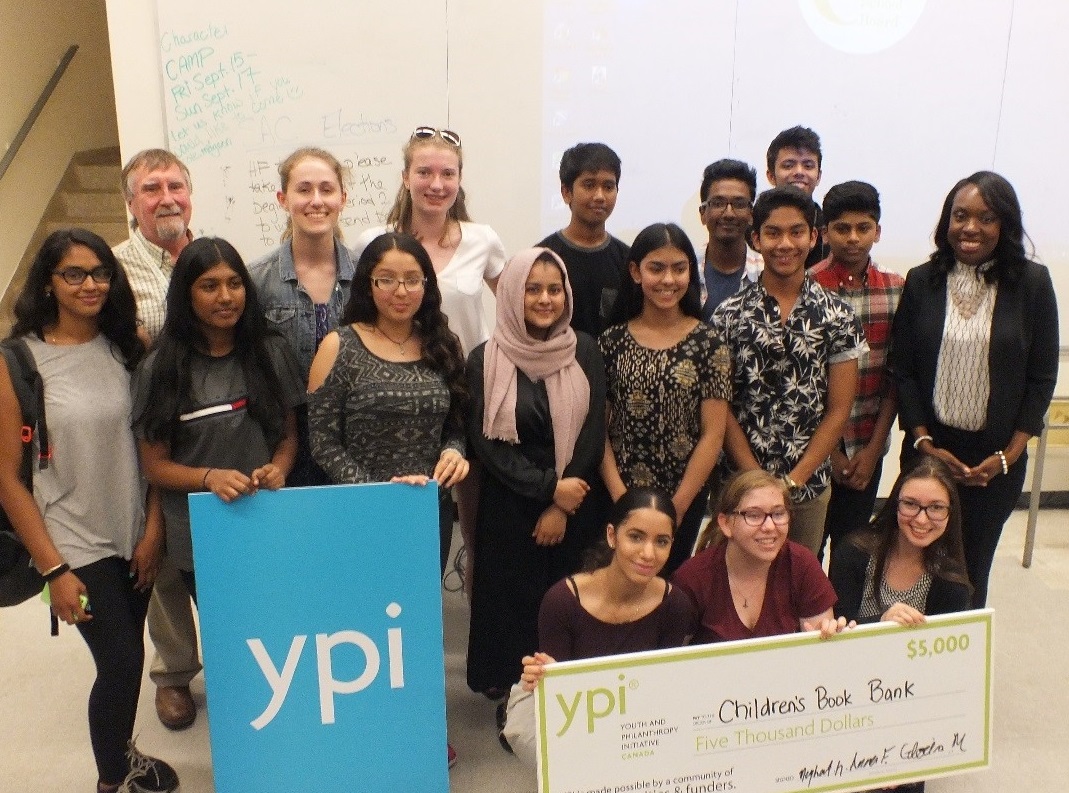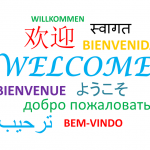
How can we authentically demonstrate to students that they can make a positive difference in their community? This is a question that I think every good Civics teacher should be asking themselves. The program I describe in this blog has been transformative for countless students at my school, Sir Wilfrid Laurier C.I. in Scarborough; for the culture of the school as a whole; and for me personally as an educator.
The Youth & Philanthropy Initiative (YPI)
YPI is a free program for public schools across Canada that engages our students in experiential learning, and connects them to social issues and local charities. In addition to offering excellent curriculum-aligned educational programming, YPI also provides a grant of $5,000 to a local charity for each participating school. Our students decide which charity YPI gives to through a competitive process in which they make a creative pitch for an organization of their choice.
In our school, and in other schools across Ontario, we run YPI as part of our Civics curriculum. YPI is a great fit with this course, directly addressing each element of the third strand, “Civic Engagement and Action”. It’s a great way to bring the course to life and to give students the opportunity to contribute authentically to their community. It can be used as one of the course assignments and also makes a terrific course culminating task.
How it Works
Every year at Laurier, YPI is launched with students in every section of Civics (it is important to YPI that the program be offered inclusively to all students) by bringing in students who have completed YPI to deliver their presentations and speak about their experience. From here, students form teams to research social issues in the local community. Each team chooses one issue that interests them, and one charity that addresses that issue to visit. This visit is a turning point for students: “Visiting our charity in person and speaking directly with the staff and volunteers made it seem so real! Face to face is so much more impactful than reading a website or even watching a video,” says Mihan Bandara, a student of mine currently participating in YPI.
Back at school, the students present to their peers about what they’ve learned, why they think their charity should win the $5,000 grant from YPI, and what their charity would do with this funding. At Laurier, Civics teachers assess the projects for the course mark and an external judge evaluates each project, and selects the top four or five groups for our annual YPI Final Event. I find that the challenge and thrill of presenting to an external judge at the classroom level increases student engagement – from the start, students understand that their work is important enough to be shared with an audience beyond than their classmates and teacher.
The groups who advance are our finalists, and they deliver their presentations at the end of the year at our YPI Final in front of all the Civics students, a judging panel, and representatives from the community organizations being supported. Our judging panel always includes the winning teams from the previous two years, and the President of our Student Activity Council. In 2017, we were delighted that both our local school trustee and MPP were available to join our judging panel. The judges deliberate based a set of criteria that YPI provides, and the team with the most compelling pitch receives a $5,000 award for their charity on the spot. Students get so excited for this event, and love the big YPI presentation cheque that the judges reveal with the winning charity’s name!
The Impact of YPI at Sir Wilfrid Laurier
I believe that one of the most important things we do as Civics teachers is foster civic engagement in our students. YPI is the perfect vehicle to support this effort. This is the eleventh year that Laurier is participating in YPI. My involvement for over a decade has allowed me to experience some of the most rewarding and satisfying moments of my teaching career. I’ve seen over 3,500 students stand up for social issues that matter to them including mental health, poverty, gender-based violence, child abuse, and supporting refugee families. We’ve had spellbound audiences as students share personal stories of their own families being helped by food banks, women’s shelters and other community organizations. It has been incredibly heartwarming and satisfying to see reluctant presenters overcome their fears of presenting because of a desire to advocate passionately for an organization that means something to them. Because students are also encouraged share their creative talent, original raps and songs, entertaining skits, and poignant stories abound. The leadership skills fostered through the program have made a tremendous impact on our school culture; YPI winners consistently assume leadership roles in all of our school clubs and teams and our school government.
With a grant of $5,000 each year from YPI, our students have directed $50,000 in funding to local charities. For many of the small local charities being represented by our students, this has made a huge difference to them. I know the impact on the charities who don’t end up receiving the grant is really valuable as well: our students have educated their peers about their program and services, and furthered their missions by helping to break down stigma around critical social issues in our city.
Last year, the Hon. Mitzie Hunter, our local Member of Provincial Parliament and then-Minister of Education, attended our YPI Final. She was blown away: “The Youth and Philanthropy Initiative can effect real change in the lives of young people and in their communities,” said MPP Hunter, “Students build skills in empathy, compassion, creativity, collaboration and advocacy as they champion their chosen charity.”
I’m so proud and so grateful to be part of this project, and would recommend it to other schools looking for ways to bring their Civics curriculum to life.
Bring YPI to Your School
YPI is currently accepting applications for new schools to participate in the 2018/19 school year. Teachers outside of the GTA in particular are encouraged to visit YPI’s website at goypi.org or to get in touch with YPI’s National Program Director, Kate Gatto to learn more. Apply or nominate a school here.
Note: This blog has outlined how YPI works in the specific context of my school. YPI’s main program requirements for schools are as follows:
1) The program is offered inclusively across one grade level in a curricular course
2) Students must visit their chosen charities
3) A YPI Final is hosted to showcase the top student presentations, at which the winning charity is decided by a panel of majority student judges.
(See full program requirements here: http://goypi.org/apply/how-to-apply.html). Within this framework, the program structure is flexible and teachers adapt the program to fit with their school’s individual culture and needs.
Charis Kelso is a Civics Teacher at Sir Wilfrid Laurier C.I. in Toronto District School Board.
Kate Gatto is the National Program Director at YPI.

